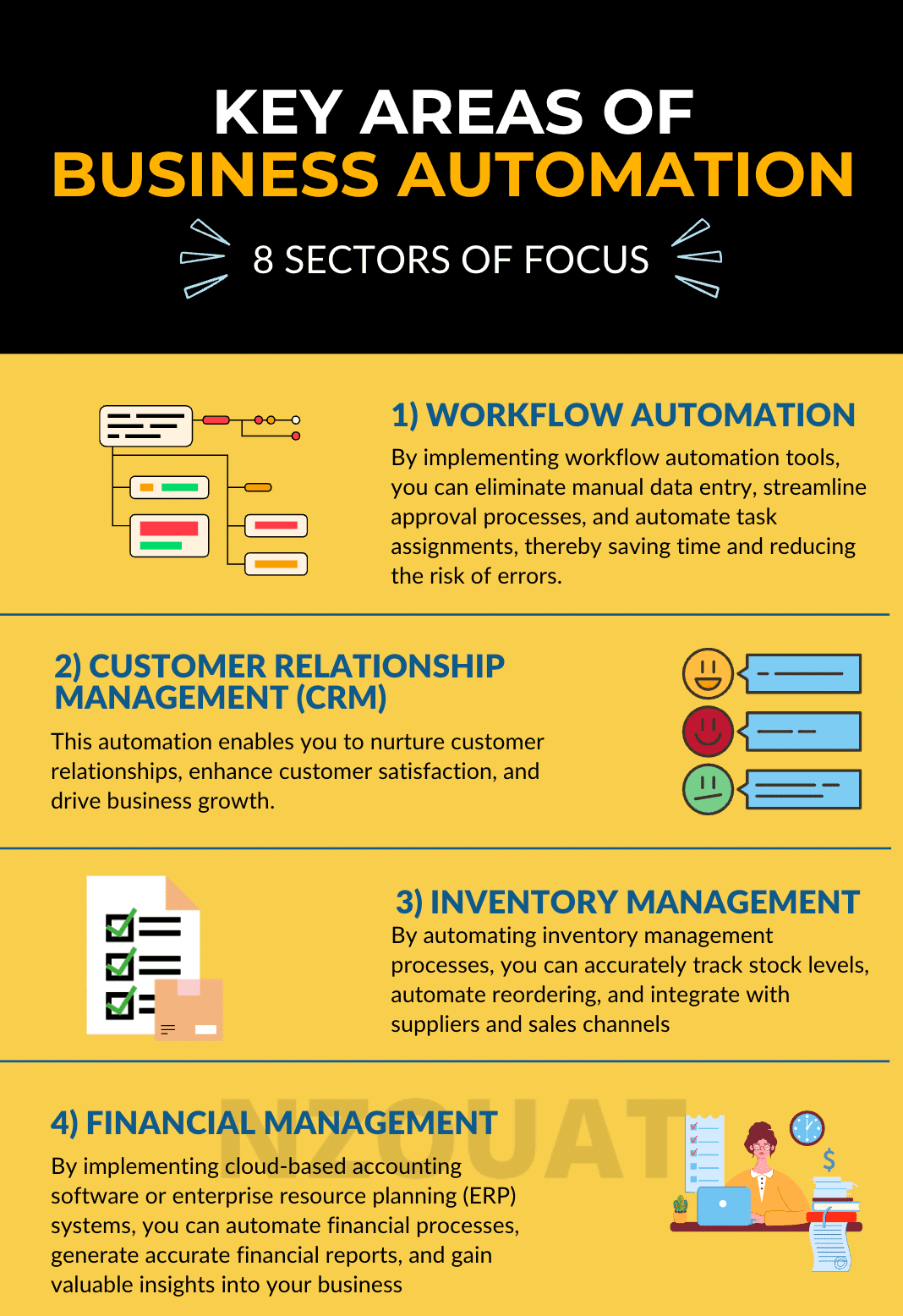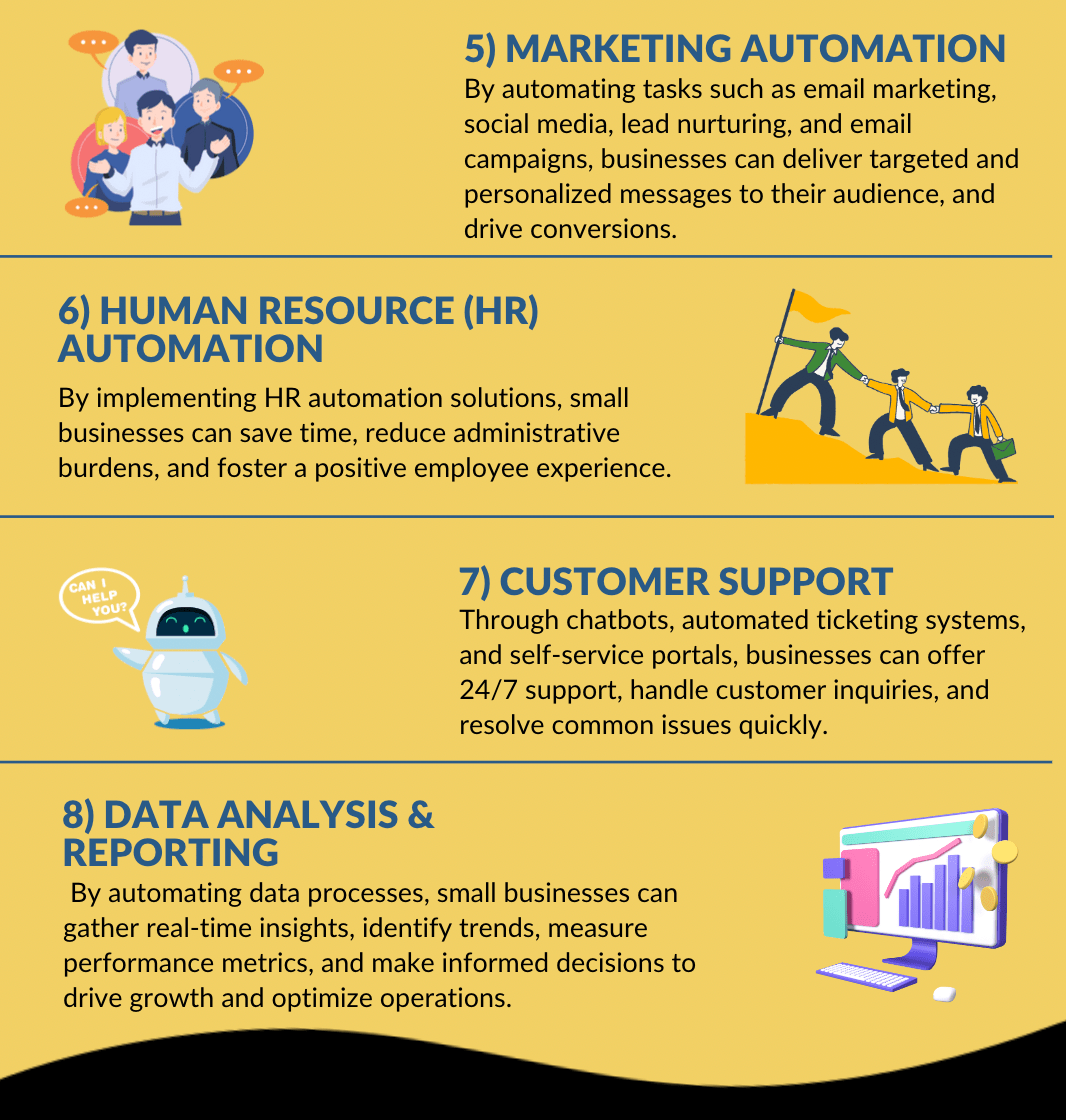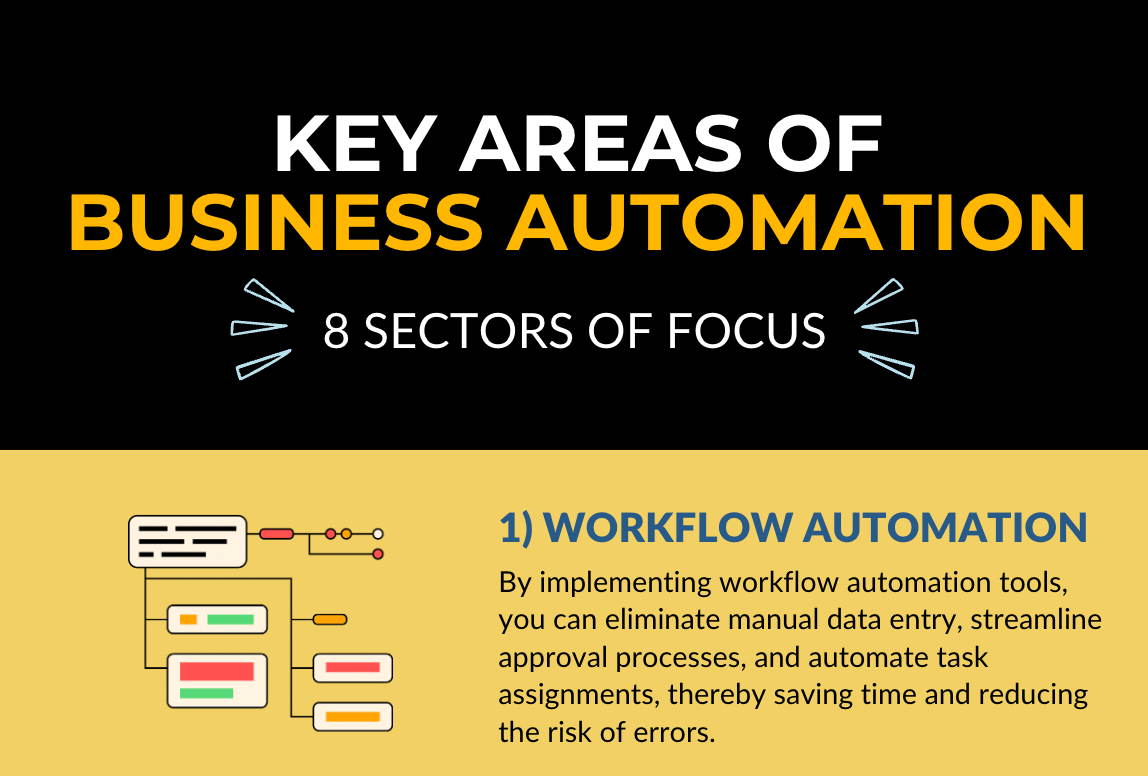In the dynamic realm of today’s digital era, where success is a race against time, small businesses are turning to a groundbreaking solution: business automation. Imagine a world where tedious, repetitive tasks are handled seamlessly, errors become a thing of the past, and precious hours are liberated for strategic decision-making. Brace yourself for an extraordinary journey as we delve deep into the realm of business automation, unravel its astonishing benefits, and guide small businesses on the path to successful implementation. Get ready to unlock the secrets of efficiency, productivity, and innovation that will propel your small business to new heights of success.
Streamlining Operations with Business Automation
Understanding Business Automation
Business automation, also known as business process automation (BPA), involves using technology to execute recurring tasks or processes in a business where manual effort can be replaced. It is a step towards a more efficient, error-free, and streamlined business operation.
Business automation involves leveraging technology and software solutions to streamline and optimize various operational processes within your organization. It allows you to automate repetitive tasks, minimize human error, and free up valuable time and resources for more strategic activities. By adopting automation, small businesses can achieve higher efficiency, reduce costs, and enhance overall productivity.
Key Areas of Business Automation
1. Workflow Automation
Workflow automation focuses on automating repetitive tasks and processes, ensuring smooth and efficient operations. By implementing workflow automation tools, you can eliminate manual data entry, streamline approval processes, and automate task assignments, thereby saving time and reducing the risk of errors.
2. Customer Relationship Management (CRM)
A CRM system is essential for managing customer interactions effectively. By implementing a CRM solution tailored to your small business, you can automate lead generation, track customer interactions, streamline sales processes, and provide personalized customer experiences. This automation enables you to nurture customer relationships, enhance customer satisfaction, and drive business growth.
3. Inventory Management
Efficient inventory management is crucial for small businesses to avoid stockouts, overstocking, and operational inefficiencies. By automating inventory management processes, you can accurately track stock levels, automate reordering, and integrate with suppliers and sales channels. This ensures optimal inventory levels, reduces carrying costs, and enhances order fulfillment, ultimately leading to improved customer satisfaction.
4. Financial Management
Business automation can greatly simplify financial management tasks, such as bookkeeping, invoicing, and expense tracking. By implementing cloud-based accounting software or enterprise resource planning (ERP) systems, you can automate financial processes, generate accurate financial reports, and gain valuable insights into your business’s financial health. This enables you to make data-driven decisions, optimize cash flow, and improve profitability.

5. Marketing Automation
Marketing automation enables small businesses to streamline and optimize their marketing efforts. By automating tasks such as email marketing, social media posting, lead nurturing, and campaign management, businesses can deliver targeted and personalized messages to their audience, improve customer engagement, and drive conversions.
6. Human Resources Automation
Human resources automation simplifies and automates various HR processes, including employee onboarding, time and attendance tracking, leave management, performance evaluations, and payroll. By implementing HR automation solutions, small businesses can save time, reduce administrative burdens, ensure compliance, and foster a positive employee experience.
7. Customer Support Automation
Customer support automation empowers small businesses to provide efficient and timely customer service. Through chatbots, automated ticketing systems, and self-service portals, businesses can offer 24/7 support, handle customer inquiries, and resolve common issues quickly. This automation improves customer satisfaction, reduces response times, and frees up support staff to focus on complex queries.
8. Data Analytics and Reporting Automation
Data analytics and reporting automation involves leveraging tools and software to collect, analyze, and generate actionable insights from business data. By automating data processes, small businesses can gather real-time insights, identify trends, measure performance metrics, and make informed decisions to drive growth and optimize operations.

Benefits of Automation for Small Businesses
Enhanced Efficiency and Productivity
By automating repetitive tasks, small businesses can significantly increase operational efficiency and productivity. Employees can focus on high-value activities that require human expertise, creativity, and problem-solving, leading to greater innovation and growth opportunities. A 2020 global survey by McKinsey and Co. states that 66% of businesses have piloted the automation of business processes in one or more business functions. This is a significant jump of 9% from 57% in the previous survey of 2018.
Cost Savings
Business automation reduces the need for manual labor and minimizes errors, resulting in cost savings over time. By streamlining processes and eliminating inefficiencies, small businesses can optimize resource allocation, reduce overhead costs, and allocate their budget to areas that drive business growth.
Improved Accuracy and Consistency
Automated systems are designed to perform tasks with a high degree of accuracy and consistency, minimizing human error. This ensures that critical processes, such as order fulfillment, data entry, and financial calculations, are completed flawlessly, enhancing the overall quality of your products or services.
Enhanced Customer Experience
By automating customer-centric processes, such as lead nurturing, personalized communications, and timely support, small businesses can deliver exceptional customer experiences. Automation enables you to provide relevant and timely information, address customer inquiries promptly, and build long-term relationships based on trust and satisfaction.
Competitive Advantage
Small businesses that embrace business automation gain a competitive edge over their rivals. With streamlined operations, improved productivity, and enhanced customer experiences, you can differentiate your business in the market, attract more customers, and expand your market
share.
Implementing Business Automation: Key Considerations
Identify Pain Points and Goals
Before implementing business automation, identify the pain points and areas that require improvement within your small business. Determine your automation goals and align them with your overall business strategy to ensure a successful implementation.
Choose the Right Automation Tools
Research and evaluate automation tools and software solutions that cater to the specific needs of your small business. Consider factors such as scalability, integration capabilities, ease of use, and affordability when selecting the most suitable tools for your organization.
Plan and Execute Implementation
Develop a comprehensive implementation plan that outlines the steps, timelines, and resources required to deploy automation solutions effectively. Collaborate with relevant stakeholders, train employees on new systems, and monitor the progress to ensure a smooth transition.
Monitor and Optimize
Regularly monitor the performance of your automated processes and systems. Identify bottlenecks, analyze data insights, and make necessary adjustments to optimize efficiency, improve outcomes, and stay ahead of evolving market trends.
In addition to understanding the benefits and implementation of process automation, it’s essential to explore the available software options tailored for small businesses. To further assist you in your journey towards automation excellence, I have prepared an informative article highlighting the “10+ Best Business Automation Software For Small Businesses“. This resource will provide valuable insights into the leading software solutions in the market, offering a comprehensive overview of their features, functionalities, and suitability for different business needs. By exploring this article, you can gain further guidance on selecting the most suitable automation software to propel your small business towards success.
FAQs About Business Automation
Q1: What is business automation?
A1: Business automation involves leveraging technology and software solutions to streamline and optimize various operational processes within an organization. It aims to automate repetitive tasks, minimize errors, and enhance overall efficiency and productivity.
Q2: How can automation benefit small businesses?
A2: Business automation offers several benefits for small businesses, including enhanced efficiency and productivity, cost savings, improved accuracy and consistency, enhanced customer experience, and a competitive advantage in the market.
Q3: What are some key areas of business automation for small businesses?
Some key areas of business automation for small businesses include workflow automation, customer relationship management (CRM), inventory management, and financial management.
Q4: How does workflow automation help small businesses?
Workflow automation helps small businesses by eliminating manual data entry, streamlining approval processes, automating task assignments, and reducing the risk of errors. It saves time, improves efficiency, and enhances overall operational effectiveness.
Q5: What is the role of CRM in business automation?
Customer relationship management (CRM) systems automate lead generation, track customer interactions, streamline sales processes, and provide personalized customer experiences. CRM automation helps small businesses nurture customer relationships, enhance satisfaction, and drive business growth.
Q6: How does automation optimize inventory management?
Business automation in inventory management enables accurate tracking of stock levels, automated reordering, and integration with suppliers and sales channels. It helps small businesses maintain optimal inventory levels, reduce carrying costs, and enhance order fulfillment and customer satisfaction.
Q7: Can business automation simplify financial management for small businesses?
Yes, it simplifies financial management for small businesses. Cloud-based accounting software or enterprise resource planning (ERP) systems automate bookkeeping, invoicing, expense tracking, and generate accurate financial reports. It helps optimize cash flow, improve profitability, and support informed decision-making.
Q8: What are the advantages of automation for small businesses?
The advantages of automation for small businesses include enhanced efficiency and productivity, cost savings, improved accuracy and consistency, enhanced customer experience, and a competitive advantage in the market.
Q9: How should small businesses implement business automation?
Small businesses should start by identifying pain points and goals, selecting the right automation tools, planning and executing the implementation process, and monitoring and optimizing the automated processes to ensure efficiency and success.
Q10: How can small businesses monitor and optimize their processes?
Small businesses can monitor and optimize processes by regularly assessing performance, identifying bottlenecks, analyzing data insights, and making necessary adjustments to enhance efficiency, outcomes, and adapt to market trends.
Conclusion
Business automation empowers small businesses to streamline operations, enhance productivity, and gain a competitive edge in the market. By leveraging automation tools in key areas such as workflow, CRM, inventory management, and financial processes, you can maximize efficiency, reduce costs, and deliver exceptional customer experiences. Embrace automation today and position your small business for sustainable growth and success in the digital age.




